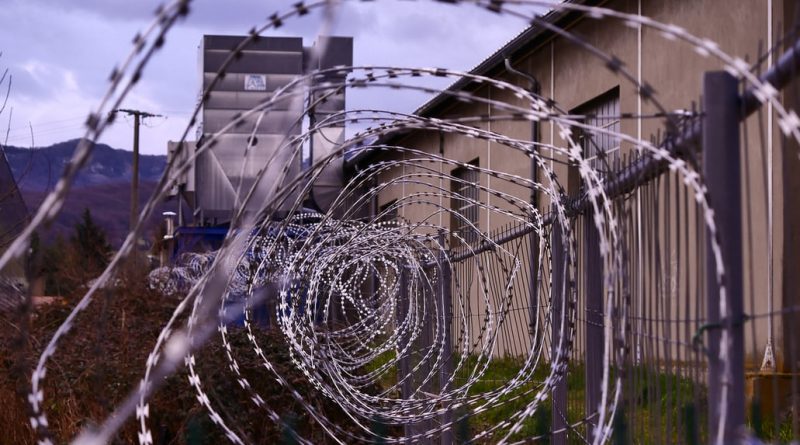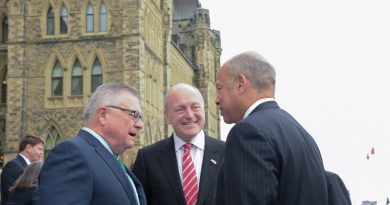A Call for Accountability at Guantanamo Bay
Madeline Field
Staff Writer
The 20th anniversary of 9/11 and simultaneous failed withdrawal of U.S. troops from Afghanistan has renewed American discussion on the War on Terror. Public consensus seems to be that this conflict has ended, as few troops remain stationed in the Middle East, and the Biden administration has pivoted its foreign policy focus to Asia. Yet, to the 39 detainees that remain in Guantanamo Bay, accused of terrorist activity, the conflict is far from over.
Guantanamo Bay began receiving prisoners in January 2002, just four months after 9/11. More than 200 miles off the coast of Florida, both politicians and citizens saw the naval base as a convenient means of housing suspected terrorists without holding them on U.S. soil, which would require suspects to be given due process. According to a CBC report, the state failed to tie many of the 779 people held at Guantanamo to the terrorist organizations. Still, images of prisoners in orange jumpsuits put the public at ease in spite of the rapidly deteriorating security situation abroad.
In Hamdi v. Rumsfeld (2004) the Supreme Court held that the government is allowed to hold “enemy combatants” during a period of hostilities “between the USA and the forces to which those detainees belonged.” While the Bush administration later established Combatant Status Review Tribunals presided over by the Department of Defense, no prisoner was able to effectively challenge their status as an enemy combatant, a work-around the District of Columbia District Court found to be a “violation of due process rights.”
According to the Department of Justice (DOJ), the term “enemy combatant” was abandoned by the Obama administration in 2009. Yet, according to congressional legislation the DOJ argued that the 2001 Authorization for Use of Military Force allowed the President to use all “necessary and appropriate force against… persons he determines planned… or aided the terrorist attacks that occurred on September 11 2001” despite the fact that the clauses were intentionally vague. The law has continuously been used to uphold detentions, stating that force may be authorized with the purpose of preventing “any future acts of international terrorism against the United States.” More than 20 years removed from 9/11, it is hard to see how these prisoners can possibly provide any further support to terrorist organizations. While the Taliban has reinstated itself as the head of the Afghani government, it seems unlikely that the detainees, all of whom have been in Guantanamo for 15 years or longer, would possess such intimate knowledge of the organization’s leaders.
This should not be misinterpreted as a call to free Guantanamo’s detainees; among the jailed are the alleged mastermind of the 9/11 attacks, the propaganda chief for Al Qaeda, and several terrorists that planned the 2002 bombing in Bali, Indonesia, according to The New York Times. Rather, it is a criticism of the indefinite detentions of many of these men, a clear violation of American values of justice and accountability. Only two of the men, have been tried or convicted on terrorism charges. Of the remaining 37, 12 have been recommended for transfer, 15 have been relegated to indefinite law-of-war detention status, and ten have been charged in the military judicial system. The large amount of classified evidence necessary to convict the men currently charged with crimes is significant, but the U.S. government has had nine years to build their case.
The acceptance of this system by each administration is not only disappointing but feeds into radical perceptions of America. 9/11 was a direct attack on U.S. values of freedom, democracy, and justice. By holding these men in degrading conditions, subjecting them to torture, and denying them their basic rights to counsel and trial, the country has lived up to extremist notions.
The DOJ has taken a step in the right direction by allowing Abu Zubaydah, a Saudi national, to provide written testimony to a Polish court about his alleged torture for ten months at a CIA black site, reports the New York Times. However, President Biden can, and should go further. According to CNN, in remarks given at the University of Connecticut on October 15, President Biden stated that “silence [on human rights abuses] is complicity.” If President Biden truly wishes to uphold this ideal, he must compel his legal team to argue to the District of Columbia District Court of Appeals that Guantanamo detainees deserve due process rights, while putting pressure on the military to either begin the trials immediately or send detainees to federal court.
Guantanamo detainees have directly and indirectly caused irreparable harm on victims and their families with wanton disregard, but that does not mean that America should shirk its values in bringing them to justice. Bringing these prisoners to trial in a timely, just manner will silence critics and prove that American ideals are again insurmountable in the face of terror.



